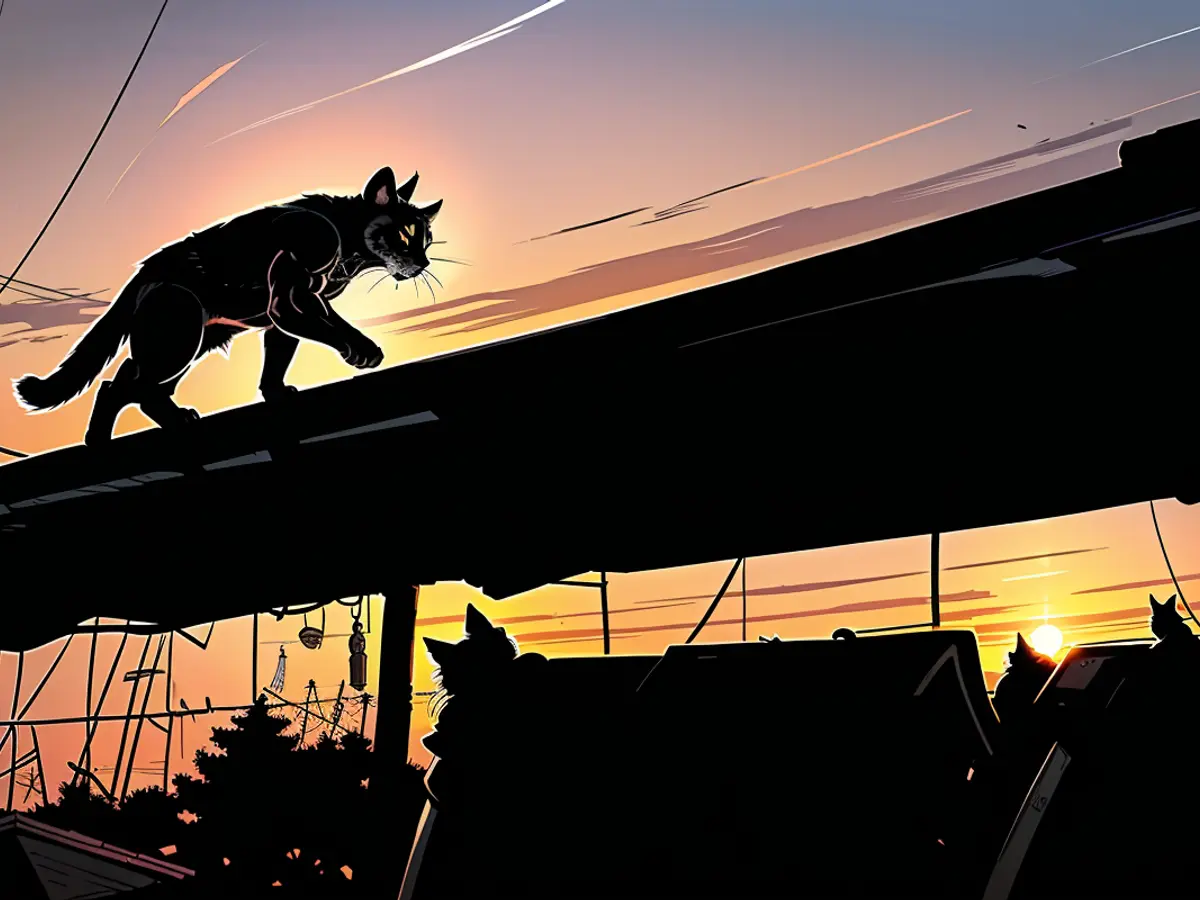- Green demands castration of free-roaming cats in Bavaria
Bavaria's Greens demand a castration requirement for all stray cats in the Free State. To permanently reduce the population of wild cats, a uniform regulation throughout the state is needed. "A cat protection ordinance that applies throughout Bavaria has two advantages: it strengthens the protection of the animals and facilitates implementation for the communities," said Paul Knoblach, spokesman for animal welfare in the faction, on the occasion of this year's World Cat Day on August 8.
While the responsible ministry has already created guidelines and model ordinances, there is still no statewide ordinance, Knoblach emphasized. This must be introduced by the Ministry of the Environment. "I want to reduce the suffering of stray cats and finally create legal certainty for the handling of unneutered cats whose owners cannot be determined."
Around 300,000 stray cats alone in Bavaria
How many stray cats are actually roaming Bavaria is unknown. It is estimated that there were 15.7 million cats in Germany in 2022, of which 2.6 million were in Bavaria. The German Animal Welfare Federation suspects that there are around 300,000 stray cats without owners in the Free State. Many owners also shy away from the cost of castration, which can be up to 200 euros, even for house cats. The result is that animal shelters are also overcrowded and sometimes cannot even take in new cats.
From Knoblach's point of view, a statewide ordinance would help to unify the current patchwork of local ordinances. The issuance of cat protection ordinances is currently the responsibility of the local administrative authorities in Bavaria. However, experience shows that this decentralized approach leads to an inconsistent and patchy implementation, the Greens criticized. Currently, there are only a few municipal ordinances in the Free State, but this does not address the problems. The Bavarian Animal Welfare Federation also demands a statewide cat protection ordinance.
Mandatory identification and restrictions on free roaming also help
In addition to the castration requirement, the Greens also demand a uniform identification and registration requirement throughout the state, as well as restrictions on the uncontrolled free roaming of unneutered cats. In this way, uncontrolled reproduction can be curbed and the well-being of the animals can be improved. Unlike well-maintained house cats, stray cats often suffer from poor nutrition and lack of medical care.
Other animal species would also benefit from a reduction in the cat population. Studies have shown that free-roaming cats, as cute as they may seem, are partly responsible for the extinction of many other animal species worldwide, such as birds. They can also transmit diseases to wild animals.
The Bavarian Greens propose a statewide identification and registration requirement for cats, alongside restrictions on uncontrolled free roaming, to enhance animal welfare and curb uncontrolled reproduction. Implementing such measures would not only benefit stray cats but also other animal species, as studies suggest that free-roaming cats contribute to the extinction of various species and can transmit diseases.
Despite the advocacy of various organizations, including the Bavarian Animal Welfare Federation, a unified cat protection ordinance is yet to be introduced, with the burden currently lying on local administrative authorities, leading to inconsistent implementation.








